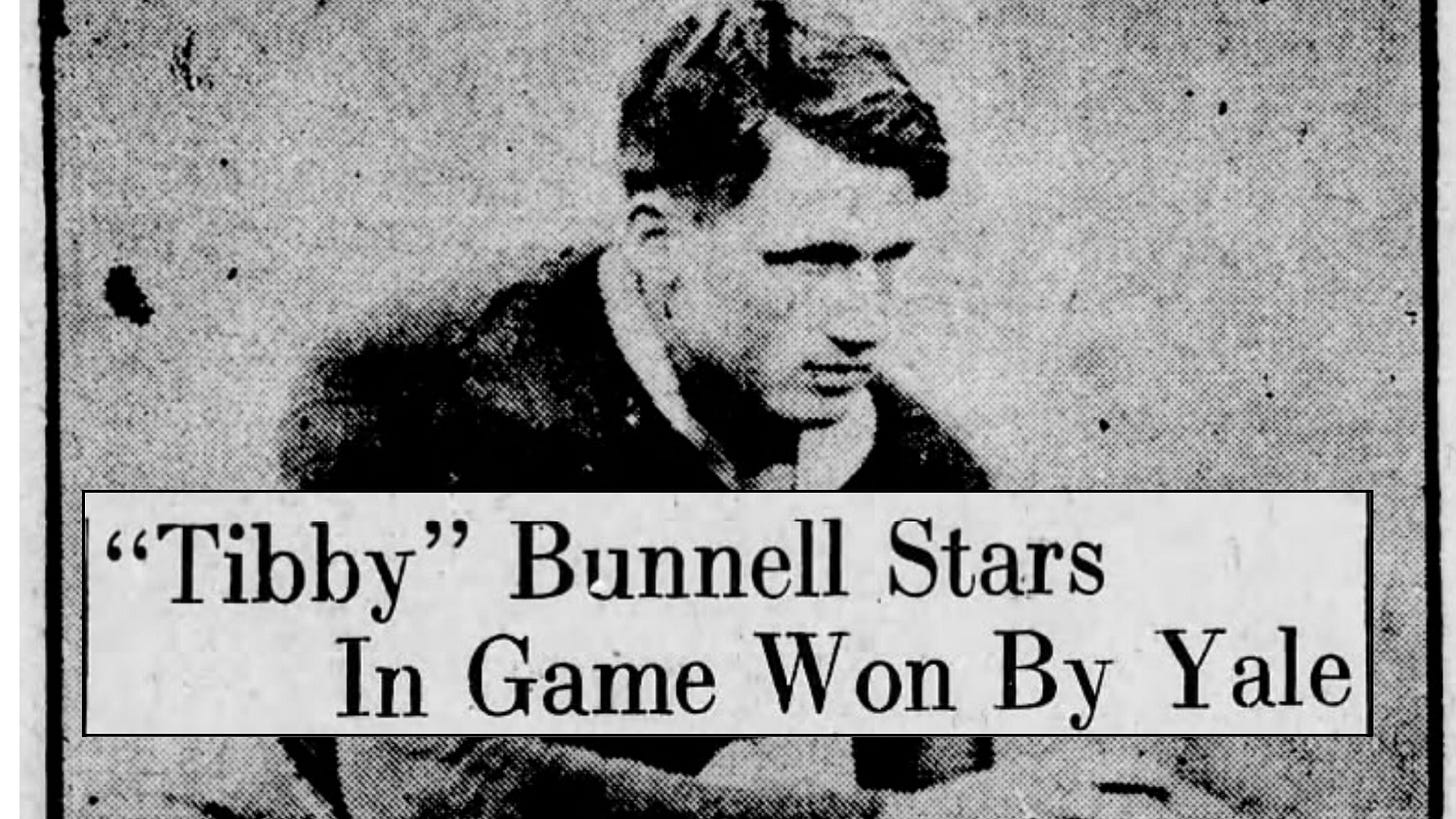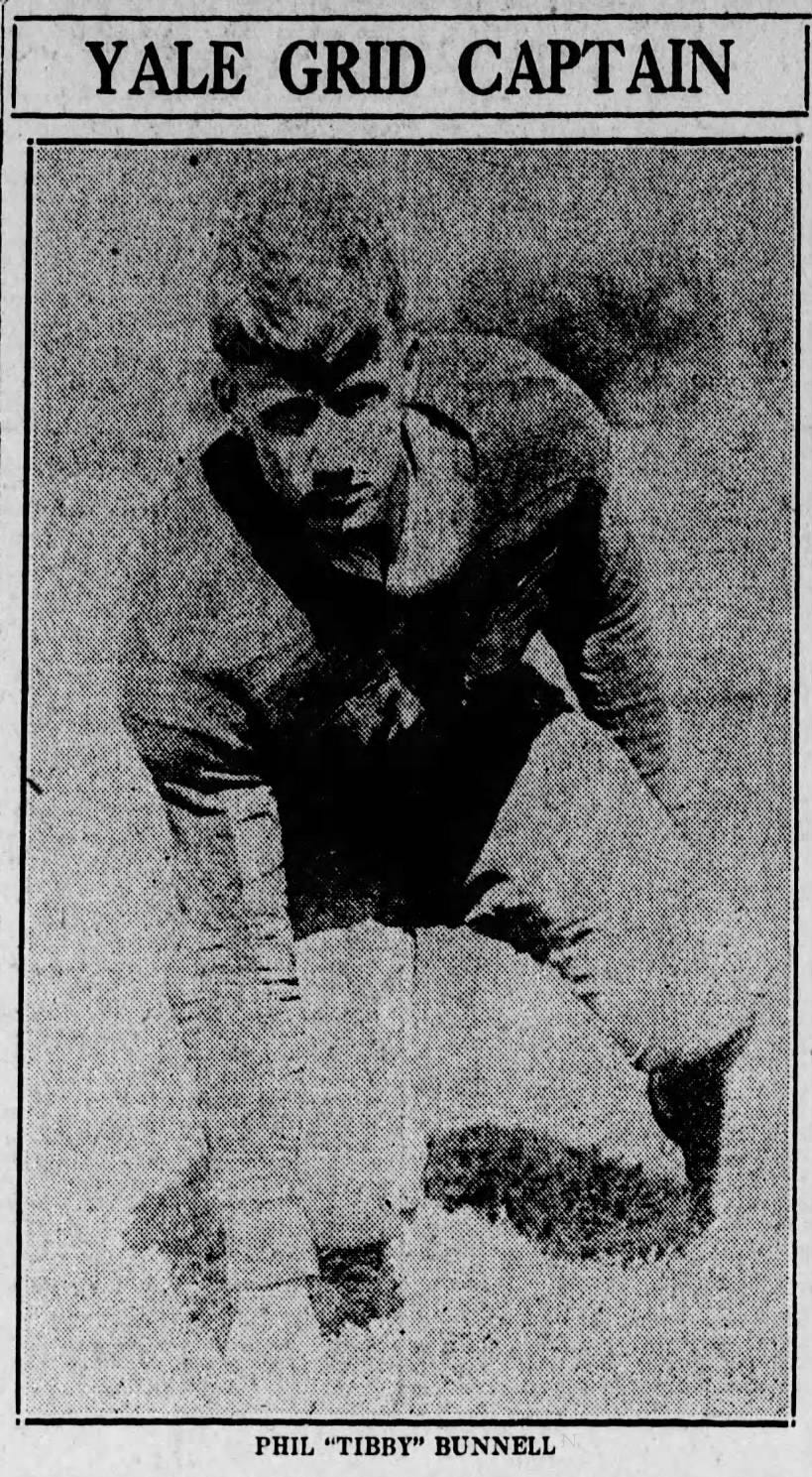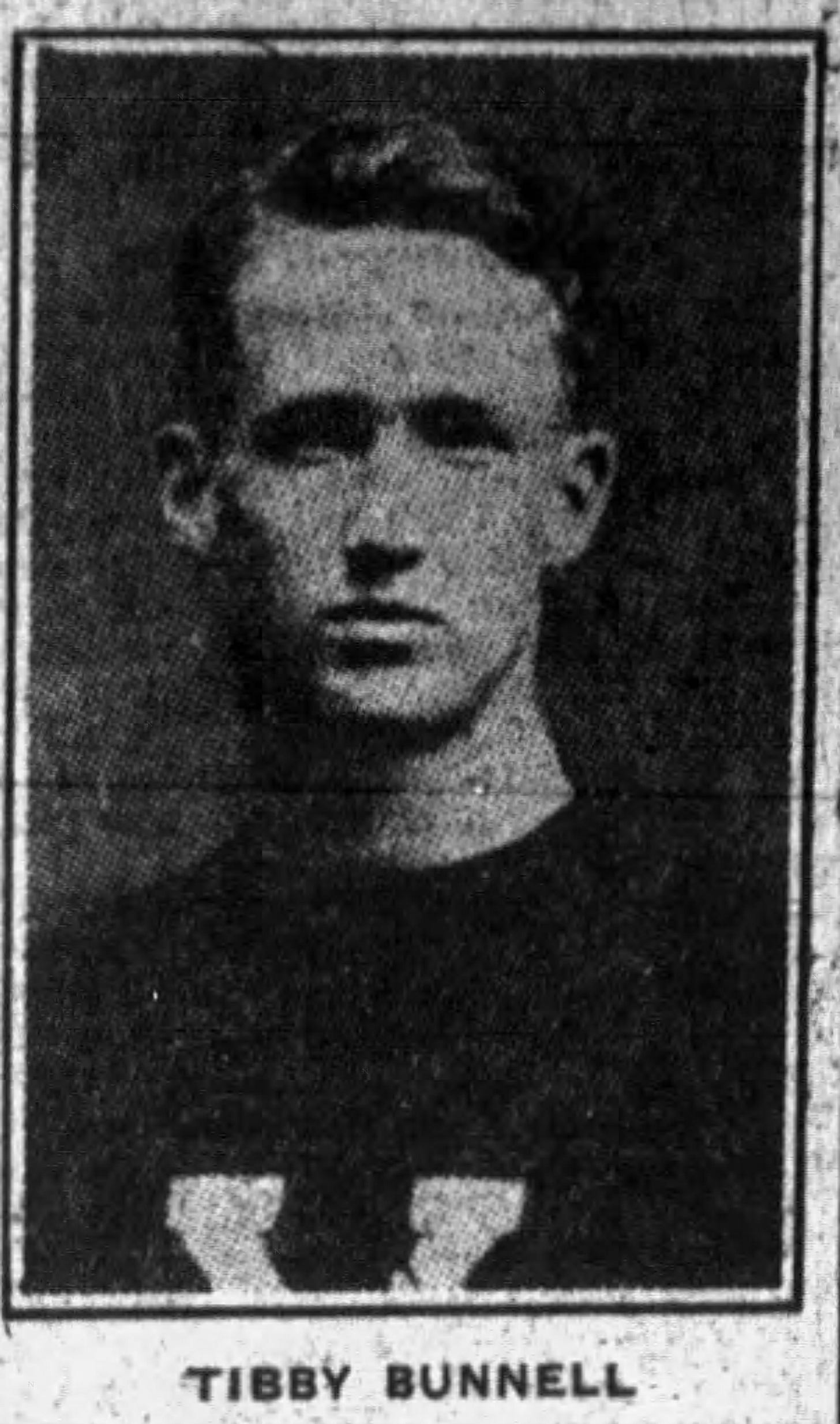Tibby Bunnell: Scranton man and Yale captain led epic win over rival
Dartmouth's 22-game unbeaten streak ended at the hands of the Scranton Central High School grad.
Beginning in November 1923 and continuing into 1926, the Dartmouth College Indians had gone 22 consecutive games without losing.
Fresh off an 8-0 season in 1925, when Dartmouth claimed its first and only national title, the Indians returned in 1926 looking the part of a defending national champion.
Dartmouth routed Norwich, 59-0. It blew out Hobart, 50-0. It shut out VPI, 20-0.
Then, it ran into a diminutive, never-say-die quarterback from Scranton, Pennsylvania.
Phil “Tibby” Bunnell was born Sept. 15, 1903, in Scranton. Bunnell, who lived on Clay Avenue, was the star quarterback at Scranton Central High School, leading Central to the 1921 scholastic league championship. He played football, baseball, basketball and track. He was also the best swimmer in the local amateur ranks.
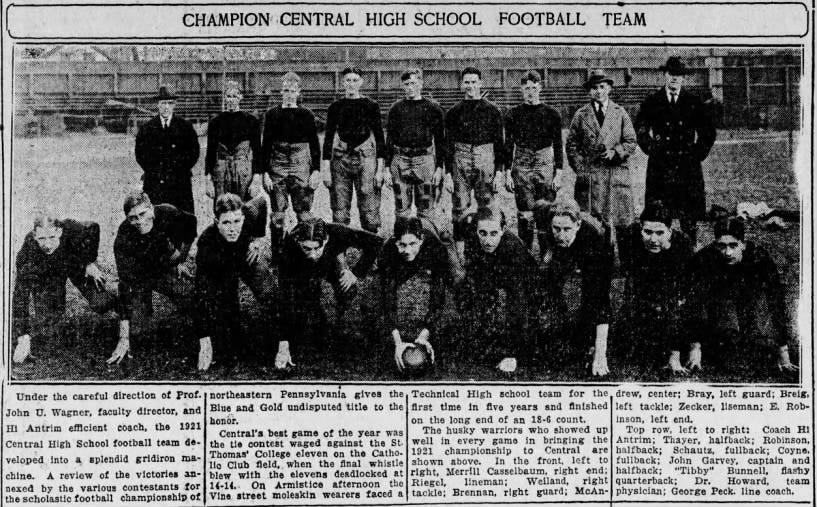
“In his four years, Bunnell has been awarded 12 letters, a new record for Central,” the Scranton Republican said.
After spending a postgraduate year at Mercersburg Academy, Bunnell, who was only 5-foot-8, 160 pounds, matriculated to Yale University to play football under Tad Jones.
Bunnell excelled in 1923 as the starting quarterback and kicker for Yale’s freshmen. In 1924, he was a key backup quarterback who often outplayed the starter. He had a breakout junior season in 1925, piloting Yale to a 5-2-1 record soured by a loss against Princeton and a tie at Harvard in the final two games.
“It is unfortunate that a team so thoroughly coached by Tad Jones should have become the victims of a slump extending through most of the season,” Bunnell said in the Scranton Times. “The team just didn’t work correctly this year.”
Nonetheless, Bunnell was an honorable mention on the All-America Board’s All-America team. The selectors for the All-America Board were Jones, Notre Dame’s Knute Rockne and Stanford’s Glenn “Pop” Warner, three of the greatest coaches of all-time.
Immediately following the season, Bunnell was elected Yale’s captain for 1926, his senior year.
“Bunnell is considered an ideal type of Yale football captain,” the Atlantic City Daily Press wrote. “He is extremely popular, a brilliant player and field general and has been prominent in every undergraduate activity in which he has participated.”
Yale beat Boston University, 51-0, and downed Georgia, 19-0, in the first two games, setting up an all-undefeated showdown at home against mighty Dartmouth.
The most famous sports writer of his time, Grantland Rice, hyped the game in his nationally syndicated Sportlight column. Rice focused on Bunnell and Dartmouth’s Eddie Dooley, calling them “two of the best quarterback in the east,” and said it would be Dartmouth’s most challenging game in years.
Dartmouth struck first with a touchdown that held for a 7-0 lead at halftime.
Bunnell tossed a 10-yard touchdown pass in the second half to tie the game. Then, with about 5 minutes left in the fourth quarter, Yale scored another touchdown, which proved to be decisive.
Final score: Yale 14, Dartmouth 7.
“Tibby Bunnell, by his performance against Dartmouth Saturday, again proved that he truly merits the honor which he holds: the captaincy of Yale,” the Scranton Republican raved. “He ran his team with rare generalship and it was his all-around work which made him one of the heroes of the Eli victory. His magnificent 65-yard run, which carried the ball from his own goal line to Dartmouth’s 35-yard mark, had its own effect in weakening the morale of the (Dartmouth) gridders.”
One national news article said Bunnell’s 65-yard run “smacked of Red Grange” and Rice led his Monday column with the result.
“Out of the widespread medley the most surprising result of the day was Yale’s victory over Dartmouth, the first Dartmouth defeat since Cornell won at Hanover in 1923,” Rice wrote. “Three years is a long, long time in football to keep on pounding the unbeaten road.”
Unfortunately, things quickly fell apart for Yale as it lost four consecutive games. It did end the season on a high note, though, beating rival Harvard, 12-7, to finish with a 4-4 record. Dartmouth also struggled to a 4-4 mark.
“Bunnell, because of injuries to his team, had little or no opportunity during the 1926 season to show his actual worth,” Jones said. “A fine, little player individually and an inspiring leader, he has every reason to be proud of this year’s performance.”
Bunnell was again selected as an honorable mention for the All-America Board’s All-America team. He never made first or second team.
Bunnell graduated from Yale in 1927. For as famous as he was as a young man, Bunnell remained mostly out of the public eye as an adult.
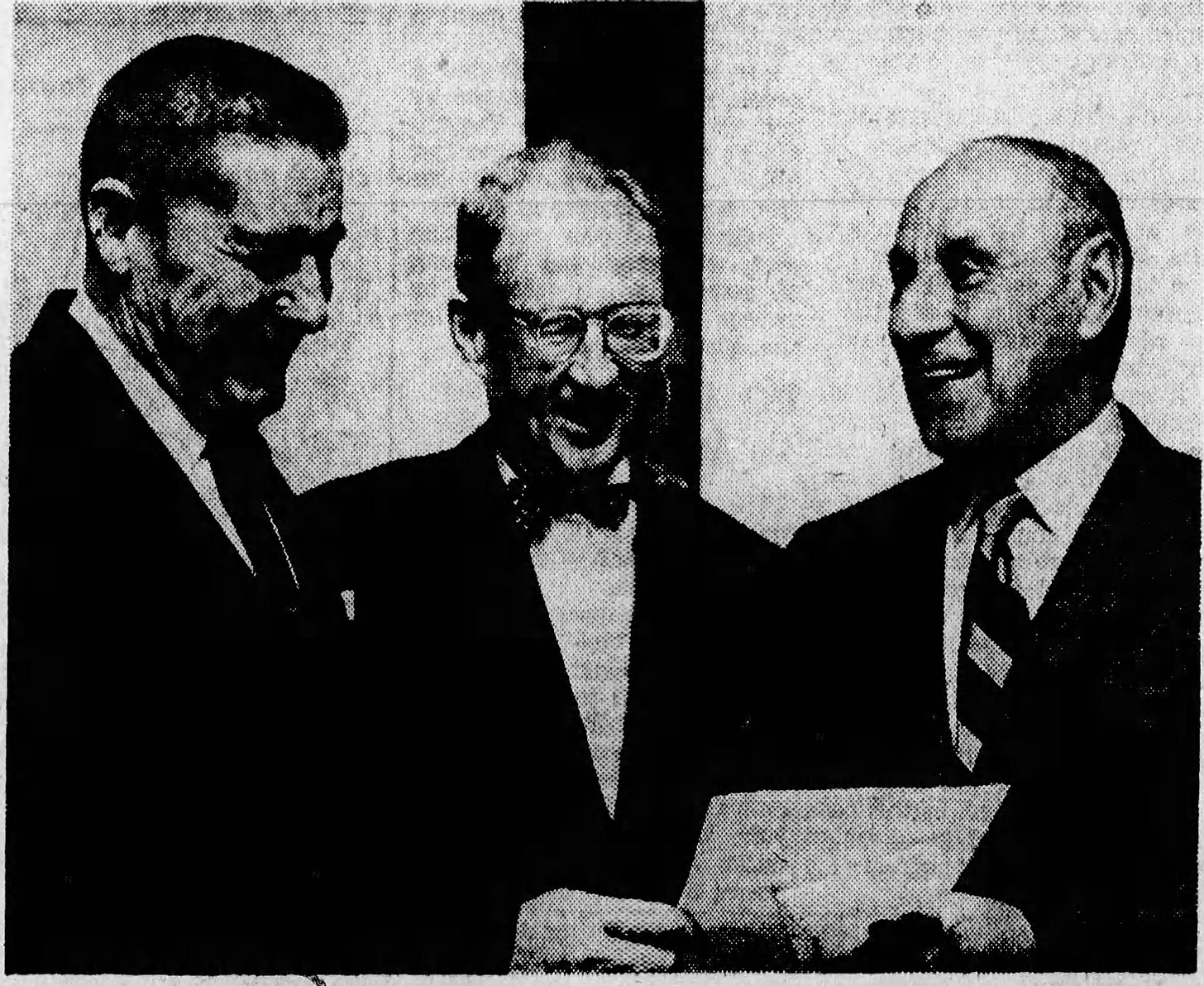
He served in World War II, lived in New York City and Washington, D.C., and got married in 1945. He appears to have died in 1991 in Greenwich, Connecticut, according to genealogical records on Ancestry.com. He was inducted into Scranton’s Northeastern Pennsylvania Hall of Fame in 1970 alongside the likes of Edgar “Special Delivery” Jones and John “Papa Bear” Henzes.
While the focus of this article and website is college football, it’s worth repeating how outstanding Bunnell was at swimming. Once his senior football season was over, Bunnell captained the swimming team, too, in the 1926-27 campaign. The Yale swim team went 13-0.


